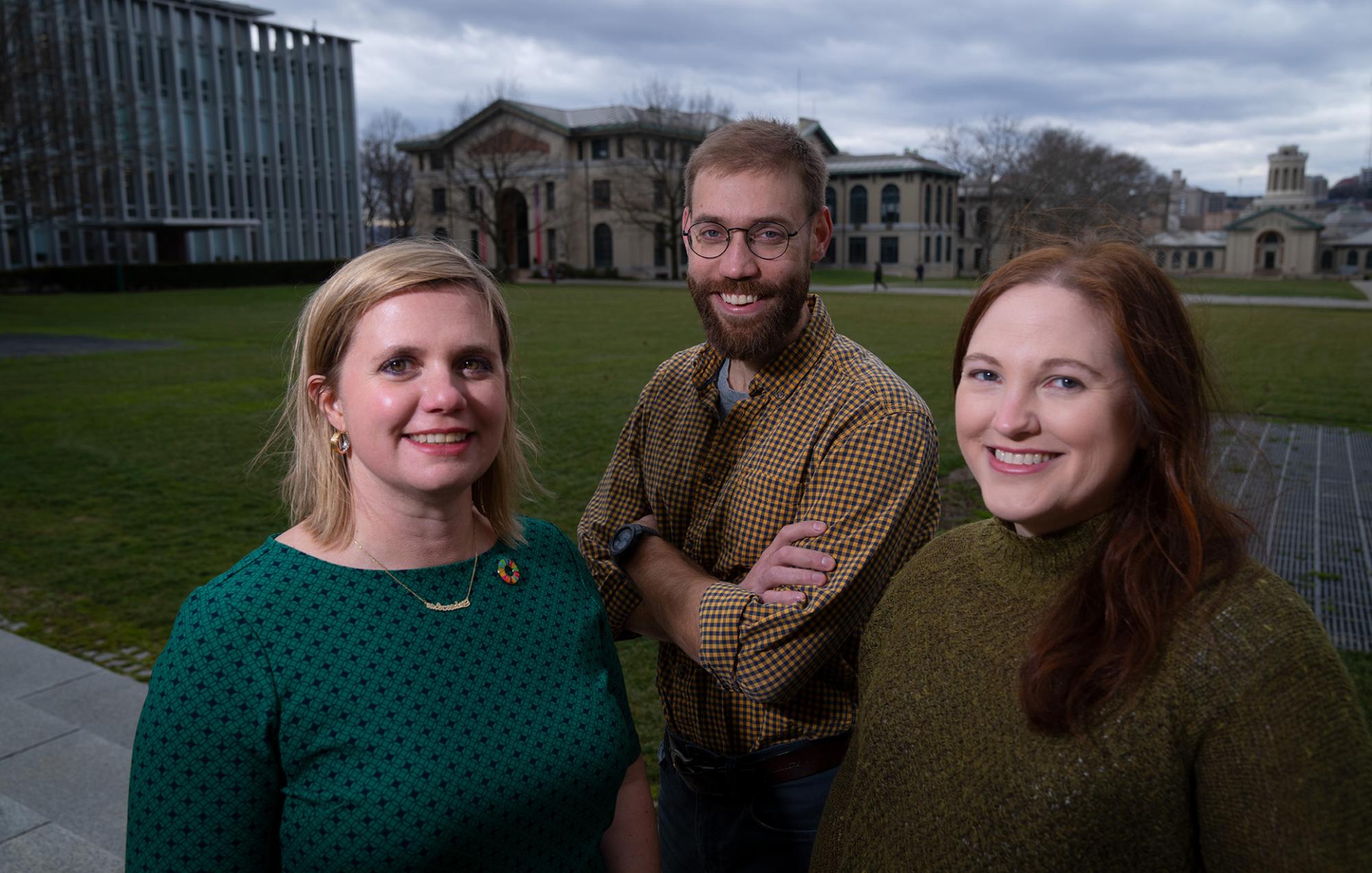
On Tuesday, January 31, the Carnegie Mellon University Libraries hosted a panel of experts from around the university for a virtual discussion celebrating the impact of citizen science and community data. Moderator Emma Slayton, the Libraries’ data curation, visualization, and geographic information system (GIS) specialist, explored the exciting work of these CMU leaders as they shared their passion for community-focused projects, innovative approaches to engaging communities in collecting and utilizing their own data, and ideas on how those in academia can support community-led advocacy.
“As data users at Carnegie Mellon, we have so many skills at our fingertips that we leverage in a research environment — but how often are we thinking about the people behind the data sets we’re using?” Slayton said. “It’s our responsibility as citizens to really think about what the data is saying, and make sure we’re representing it truthfully. The panel explored ways to re-center the communities behind the data, and look at how we can learn from them what issues are important and use data specifically to make their lives better.”
Each panelist brought their own unique experience using community data throughout every step of a project. Mickey McGlasson, a community data scientist at CMU’s Community Robotics, Education and Technology Empowerment (CREATE) Lab, shared background about several major projects and working groups in the local environmental justice space.
The first, EarthTime, launched from a partnership between the CREATE Lab and the World Economic Forum to promote data literacy and help local organizations visualize their own data. Next, the Black Equity Coalition, was created in the aftermath of the pandemic, in response to concerns about racial equity in the Pittsburgh region. It initially formed to advocate around data related to COVID, but is now expanding to examine broader issues of public health and injustice.
McGlasson also discussed the Center for Shared Prosperity (CSP), a Carnegie Mellon University and Heinz Endowments initiative to promote economic empowerment and address inequities in the Pittsburgh Region. The CSP has launched several new projects over the past year and half. “The idea that a university could be a canvas and support agent [for creating systemic change within a local community], without dictating what projects end up being or how they progress, for me, is where the really exciting element of CSP lies,” he said. “It’s a really interesting model for how a university might relate to the community around it — and it’s just getting started.”
From the University Libraries, Director of the Open Source Programs Office (OSPO) Sayeed Choudhury brought his expertise using open science to bridge the gap between academic institutions and community organizations. In his previous role at Johns Hopkins University, he worked with the St. Francis Neighborhood Center to promote more transparent data sharing between local communities and the university, and raise awareness about local health care. He stressed the importance of listening to communities, and giving them the agency to solve their own problems.
“We need to reconsider how we gather, analyze, and share data. Building a sense of agency is bolstered where there’s trust and transparency,” he said. “Open source software is a pathway to long-term engagement with local communities using transparent processes to foster trust.”
Finally, Alex Hiniker, director of Sustainability Initiative at Carnegie Mellon, shared her work helping communities all over the globe use data to combat societal problems. Most recently at Carnegie Mellon, this work has focused on implementing the Sustainable Development Goals (SDGs) — 17 global objectives that all countries agreed to achieve by 2030, focusing not only on the environment but also social equity and justice. Hiniker relies on education to engage new groups in this work.
“Using the common language of the Sustainable Development Goals, CMU has so much to bring to the conversation, not only in terms of how we are conducting our operation but also in the ways we are educating our students, faculty, and staff, and the type of research that we’re conducting,” she said. “If you don’t center the perspectives and priorities of the communities with which you’re partnering, you will never find a sustainable solution to the challenges they’ve identified. That’s really informed my work both in the city of New York and here at Carnegie Mellon.”
All three panelists agreed that libraries are a vital resource for disseminating information and mobilizing a community. At Carnegie Mellon, for example, the Sustainability Initiative recently found a home at the University Libraries, with the Sustainability Studio on the first floor of Hunt Library serving as a new gathering space on campus where community members can come together to discuss diverse perspectives and solve shared problems.
“The Sustainability space is a great example of how research libraries can [provide a pathway to information literacy],” Choudhury said.
To conclude the event, panelists left attendees with a number of action items to engage deeper with community data. The Libraries has planned a series of spring workshops, free of charge and open to the CMU community and the general public, geared toward using data to bring about social change. Students, faculty, staff, alumni, and members of the broader community can register to attend, free of charge, to learn more about data visualization, qualitative data, GIS mapping, and more.
Hiniker encouraged attendees, especially faculty and staff, to use the SDGs to continue to think comprehensively about their work and how it connects to other topics. Students can also check the CSP and the CREATE Lab for internship opportunities, McGlasson added.
“Now is a great time to get involved in this work if it’s something you’re interested in,” he said. “You have a unique chance to help shape what these projects and relationships with community organizations look like.”
Feature image: Alex Hiniker, Mickey McGlasson, and Emma Slayton in front of Hunt Library
by Sarah Bender, Communications Coordinator
